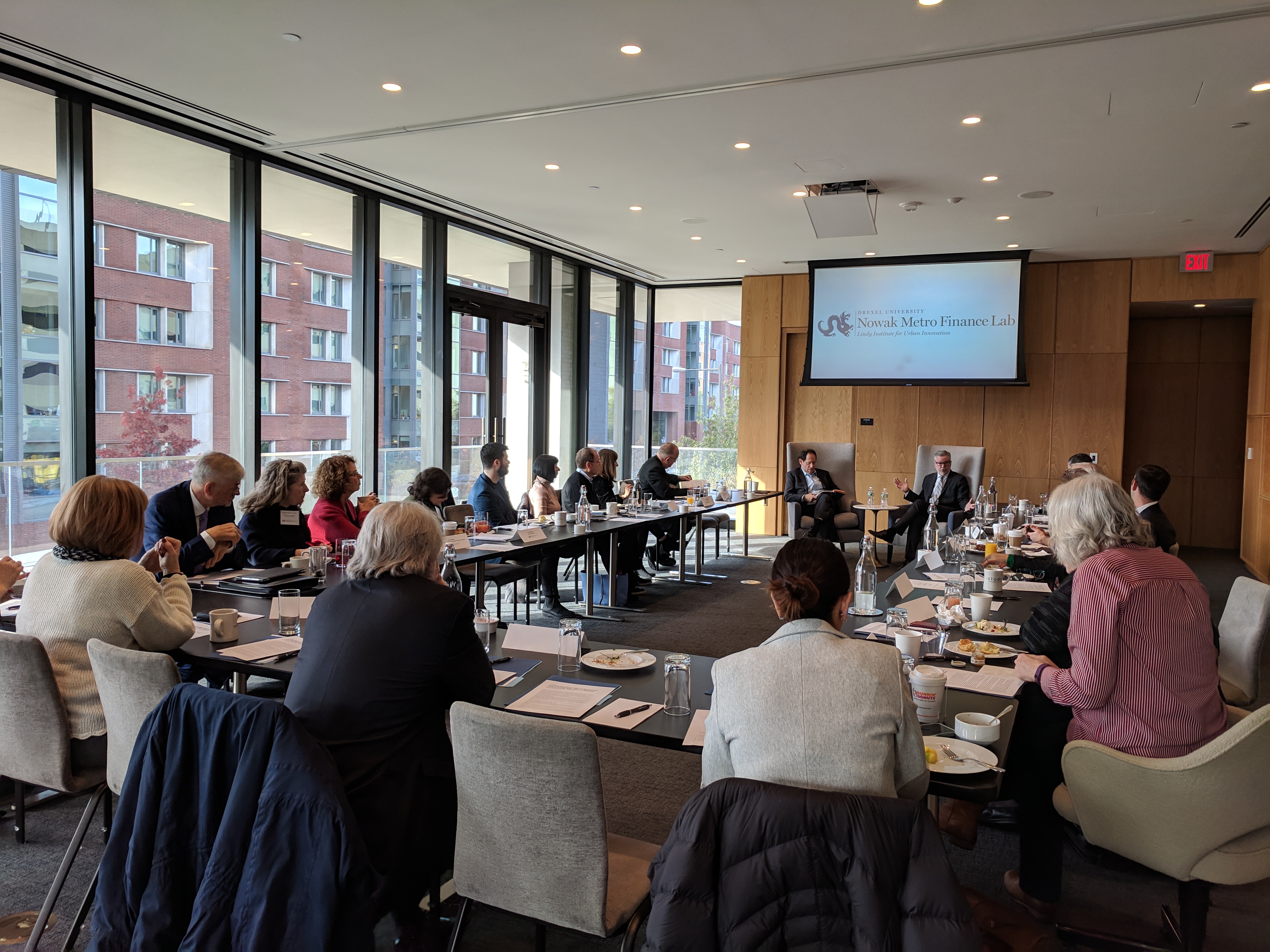Nowak Metro Finance Lab Launch overview
March 21, 2019
Drexel University launched the Nowak Metro Finance Lab on November 14th, 2018 with a workshop focused on analyzing proven institutional models for financing inclusive urban revitalization. The workshop brought together elected officials, public administrators, venture capitalists and researchers to think deeply about how development models might adapt to the evolving global, national and local contexts, attracting reflective practitioners from across the U.S. and Europe. Organized in collaboration with Philadelphia Industrial Development Corporation (PIDC) and City Finance Lab located at BLOXHUB in Copenhagen, Denmark, the event served as a model for convenings the Lab is expected to replicate as it scales over the coming year.
The first day of the workshop explored four best-in-class institutions: the Philadelphia Industrial Development Corporation (PIDC) (and its transformation of the Navy Yard), the Copenhagen City & Port Corporation, Hamburg’s HafenCity and Cincinnati’s Center City Development Corporation (“C3DC”), comparing and contrasting their origins, enabling features, governance structures and financing mechanisms. Mayor Greg Fischer of Louisville offered a keynote address and participants explored the disparate actions that these institutions have taken to resolve common challenges around affordable housing, infrastructure finance and stakeholder management.
The second day of the workshop analyzed how other cities could adapt these proven models by either repurposing existing institutions or creating new ones, using Erie, PA and the recent launch of the Erie Downtown Development Corporation as a case-study to test innovative concepts and attempt to establish a roadmap for the large-scale replication and adaptation of institutional models. The event exemplified the type of collaboration between the public, private and civic sectors that is a hallmark of the Lab’s work to spur transformative redevelopment, capture value for reinvestment and drive inclusive growth.
The workshop reinforced the belief that urban institutions are generally created or re-purposed due to deep crisis or external stimuli, often carrying out broad federal urban revitalization initiatives in a deliberate and strategic way. It also emphasized that creating modern institutions will require a new set of market tools and processes that can make the difficult possible. Ongoing and future research studies conducted at the Lab, in partnership with practitioners from around the United States and Europe, will aim to highlight opportunities and strategies for cities to organize how they deploy their own economic development policies and customize those enabling institutions to achieve their goals.

 President Fry and Bruce Katz in conversation with the Nowak Metro Finance Lab group.
President Fry and Bruce Katz in conversation with the Nowak Metro Finance Lab group.